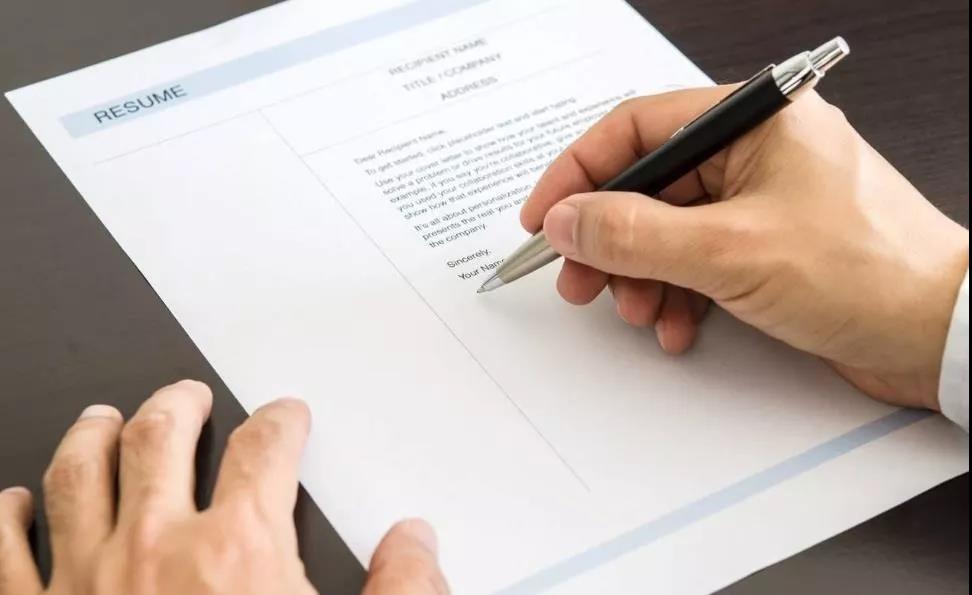新视野英语教程1Unit8答案国家级规划教材读写教程第二版
时间:2020-10-26 01:27:44 来源:勤学考试网 本文已影响 人 
新视野英语教程1 Unit 8 答案
Section A
P139 Reading Out:
Fill in the blanks without referring to the original text. Then check your answers against the original. After that, read the passage aloud until you can say it from memory.
--------------------------------------------------------------------------------
But experts in the study of (1) ▁▁▁through body movement are not yet prepared to (2) ▁▁▁out an exact dictionary of gestures, (3) ▁▁▁ body movements can mean many things. For example, a student in conversation with a professor may (4) ▁▁▁ the older person's eyes a little longer than usual. This gesture can be a sign of (5) ▁▁▁ and love; it can be a small challenge to the professor's 6▁▁▁ ;or it can be something else entirely.
Answer:
communication (2) spell (3) as (4) hold (5) respect (6) authority
Getting the Message
Read the following questions and complete the answers according to the text.
--------------------------------------------------------------------------------
1. How do we communicate with one another?
We communicate with one another ▁▁▁.
2. How do children understand and learn the meanings of body language?
They understand and learn them▁▁▁ .
3. What factors (因素) influence our body language?
▁▁▁ influence our body language.
4. Why does an English-dubbed foreign film often seem very flat?
Because▁▁▁ .
5. How can one's emotion be communicated?
It can be communicated ▁▁▁.
Answer:
(1) by using both verbal and nonverbal languages
(2) along with words
(3) Our sex, racial background, social class and communication style
(4) the gestures in the film often don't match the language dubbed into it
(5) by using body language
P120 Using the Right Word:
Choose the best item to complete each of the following sentences.
--------------------------------------------------------------------------------
1. Born deaf (聋的), she could not use __B__ language to communicate with us.
A. nonverbal
B. verbal
C. foreign
D. body
2. Being a(n) ___A__ of America, the famous movie star decided to run for US president.
A. native
B. male
C. original
D. female
3. One cannot _D___ across his thoughts to others well if he doesn't master enough words.
A. pass
B. hand
C. transport
D. put
4. Could you give me more of his __A___ information before I agree to interview him?
A. background
B. underground
C. back
D. behind
5. His __C___ expression (表情) shows that he is unhappy about that.
A. body
B. hand
C. facial
D. verbal
6. Mom always tells me to work more __D___ so that I can have more time to play and relax.
A. efficient
B. easily
C. ease
D. efficiently
7. Though defeated, the guest team __C___ us to another match this Saturday.
A. changed
B. wanted
C. challenged
D. made
8. The teacher granted her the __B___ to be in charge of Group One at the spring-outing (春游).
A. ability
B. authority
C. certificate
D. authorities
Working with Expressions:
Fill in each of the blanks in the following sentences with a suitable preposition or adverb.
--------------------------------------------------------------------------------
1. Our teacher usually finishes ▁▁▁ each of her sentences by looking straight into one of the students' eyes.
2. One psychologist concludes if a person uses too many gestures while ▁▁▁ conversation ▁▁▁ others, it shows that he or she is not sure of himself or herself.
3. She speaks with standard British English pronunciation, so I can easily pick ▁▁▁ her nationality (国籍).
4. Failing to put ▁▁▁ what she really wanted to say, the old woman finally drew a picture.
5. Tom found it difficult to communicate ▁▁▁ his great grandfather.
6. The publishing house (出版社) called together many experts to spell ▁▁▁ a completely new book on grammar.
7. My grandparents enjoy listening to classical music, along ▁▁▁ dancing.
8. She must have told us a lie, because she looked ▁▁▁ quickly.
Answer:
up (2) in; with (3) out (4) across (5) with (6) out (7) with (8) away
P141 Focusing on Sentence Structure:
A. Rewrite the following sentences after the models, using the expression "along with".
--------------------------------------------------------------------------------
1. Small kids learn a lot of stories from their grannies (奶奶). They also learn many words from them.
Small kids learn a lot of stories from their grannies, along with many words.
2. Last month Mr. Smith went on vacation. His wife went with him.
Last month Mr. Smith went on vacation, along with his wife.
3. The teacher took a portable (手提式的) computer into the classroom. He took a tape recorder, too.
The teacher took a portable computer into the classroom, along with a tape recorder.
B. Rewrite the following sentences after the models, using the expression "thanks to".
--------------------------------------------------------------------------------
1. I did not get wet in the rain, for I brought an umbrella with me.
Thanks to the umbrella I brought with me, I did not get wet in the rain.
2. As they called a taxi, they were able to catch the train.
Thanks to the taxi they called, they were able to catch the train.
3. A kind man gave her a large sum of money, so her business was saved.
Thanks to the large sum of money a kind man gave her, her business was saved.
P142 Translating:
A. Translate the following into English.
--------------------------------------------------------------------------------
1. 在西方人看来,与人交谈时不看着对方的眼睛是很不礼貌的。(have a conversation)
To Westerners, it is very impolite not to look at his or her eyes while having a conversation with him or her.
2. 有的手势在不同的文化中表达的意思完全相反。(entirely)
In different cultures, some gestures have entirely different meanings.
3. 库克先生不仅能左手使筷子(chopsticks),而且还能用左手写字。(what is more)
Mr. Cook can use chopsticks with his left hand, and what's more, he can write with his left hand, too.
4. 他的优点之一就是敢于向权威挑战。(challenge)
One of his strong points is that he dares to challenge the authority.
B. Translate the following into Chinese.
--------------------------------------------------------------------------------
1. It is also interesting to note that in talking, Americans are likely to end a sentence with a dropping of the head or hand, as well as with a lowering of the eyelids.
同样能有趣地发现,美国人讲完一句话时可能低一下头或垂一下手,还可能垂一下眼帘。
2. Everything from your sex, racial background, social class, and communication style all influences your body language.
你的性别、你的种族背景、你所属的社会阶层和你的交际风格,这一切都会影响你的肢体语言。
3. What the nonverbal gestures put across very often and very efficiently is the emotional side of the message.
非言语的手势极其频繁而且极其有效地传递的是情感方面的信息。
4. Total communication = 7 percent verbal + 38 percent oral + 55 percent facial.
总交流量=7%的文字交流+38%的口头交流+55%的面部表情交流。
Using Topic-related Terms:
All of the following words and expressions are related to gestures and body language. Read them closely and then use them to complete the passage that follows. Make changes if necessary.
--------------------------------------------------------------------------------
To (1) more efficiently we use gestures as part of our body language. We often do these small and (2) things without realizing we are using them in conversations. When we find it difficult to make others understand the (3) of our speech, we make (4) to put ourselves, especially our (5) , across to others. Some psychologists even conclude that a person's body language sometimes tells his or her educational (6) .
Answer:
communicate (2) random (3) meaning (4) gestures (5) emotions (6) background
Section B
P148 Getting the Message:
Choose the best answer to each of the following questions.
--------------------------------------------------------------------------------
1. On what occasion can strange things happen when we use body language?
A. When it is used among people of the same culture.
B. When it is used among people with different cultures.
C. When it is used among people with the same social background.
D. When it is used among native language speakers.
2. What does an "A-OK" gesture mean in Japan?
A. It means "zero".
B. It means "good".
C. It means "money".
D. It means "toilet".
3. Why does the Sardinian woman hit the British man with her handbag?
A. Because the man asks her a rude question.
B. Because the man doesn't tell her how to find a taxi.
C. Because the man offers to take her to Heathrow Airport.
D. Because the man makes a thumbs-up gesture to her, which she thinks a rude one.
4. Why is the Colombian made angry by the Frenchman?
A. Because the Frenchman drinks his wine.
B. Because the Colombian swallows the wine the wrong way.
C. Because the Colombian thinks the Frenchman made a mean gesture to him.
D. Because the Frenchman makes a gesture to horrify the Colombian.
5. What gesture almost makes the Syrian get up to hit another person?
A. Holding one's nose between one's finger and thumb.
B. Holding out both hands.
C. The thumbs-up gesture.
D. The finger and thumb ring gesture.
Answer:
B C D C A
P149 Using the Right Word
Choose the best item to complete each of the following sentences.
--------------------------------------------------------------------------------
1. You must have said something to _____ her, as she was crying after talking with you.
A. defend
B. offend
C. confuse
D. direct
2. Do you know why she looks so _____? She got high marks in the final examinations.
A. cheerful
B. sad
C. angry
D. confused
3. In America, making the _____ gesture means "very good".
A. thumbs-down
B. small fingers-down
C. small fingers-up
D. thumbs-up
4. I didn't have enough strength to _____ him back from beating a man in this way.
A. put
B. stop
C. hold
D. catch
5. The country has experienced _____ changes since the economic reform.
A. little
B. directly
C. instantly
D. significant
6. We've had many _____ in working out this problem, so we need your help.
A. difficulties
B. horror
C. trouble
D. issues
7. This young man always thinks differently from the others, and what's more, he even behaves in
the _____ way.
A. against
B. opposite
C. across
D. another
8. Without careful scientific research, how can they _____ that there is no life on that planet (星球)?
A. draw
B. include
C. result
D. conclude
Answer:
B A D C D A B D
Working with Expressions
Fill in each of the blanks in the following sentences with a suitable preposition or adverb.
--------------------------------------------------------------------------------
1. Maybe the man said something to upset the lady beside him as he suddenly got a hit
the chin.
2. The man tried very hard to hold the two boys back fighting with each other.
3. She noticed a man dressed in a black suit glancing her.
4. Thanks Tom's help, I could finish my work in time.
5. She wrongly believed that the gesture was directed her.
6. When asked if it was all right to sit beside him, the man replied a gesture of
"A-OK".
7. One should be careful gestures when communicating with foreigners.
8. Our class challenged the school champion a football match yesterday.
Answer:
(1)
?on?
(2)
?from?
(3)
?at?
(4)
?to?
(5)
?at?
(6)
?with?
(7)
?with?
(8)
?to
Section C
P150
A. Use the information below and fill out the telephone message form.
--------------------------------------------------------------------------------
The date is July 4th, 2008. While Mr. Bush was away, Mr. Peter Schulz called from Vienna. Mr. Schulz asked Mr. Bush to call back today before 4:00 pm or any time tomorrow. The telephone number is 01-465 9924. Mr. Schulz would like to negotiate (谈判) the discount (折扣). The message was taken by Barbara Sanders. To: (1)
Date: (2)
Message: (3)
Message taken by: (4)
Answer:
(1) Mr. Bush
(2) July 4th, 2008
(3) Mr. Peter Schulz called from Vienna.
Please call him today before 4:00 pm or any time tomorrow on 01-4659924.
He would like to negotiate the discount with you.
(4) Barbara Sanders
B. Write a telephone message in note form by using the information provided below.
--------------------------------------------------------------------------------
You work for Concord Travel. Mr. Meyer, your manager, is out of the office this morning. You received a telephone call for him. The caller's name is Mrs. Dyson. She asked the manager to call her back this afternoon. Her number is 071- 4852871. Use today's date. (1)
(2)
(3)
(4)
(5)
(6)
Answer:
(1) April 11th, 2013
(2) 9:00 am
(3) Message for Mr. Meyer
(4) Mrs. Dyson phoned
(5) Please call her back this afternoon at 071-4852871.
(6) Message taken by J. Smith
C. Suppose you are the receptionist. Fill out the following form with the information provided
below.
--------------------------------------------------------------------------------
1. Pete Gary called Joe Williams, saying that he will be twenty minutes late.
2. Mr. Longwitz called Keith Brown, saying there's no meeting today.
3. Ms. Rebecca called Mr. Dupont, saying they must meet in the Florida Bar before 6:00 pm. From To Message
1 (1) (2) (3)
2 (4) (5) (6)
3 (7) (8) (9)
Answer:
(1) Pete Gary (2) Joe Williams (3) He'll be 20 minutes late.
(4) Mr. Longwitz (5) Keith Brown (6) No meeting today.
(7) Ms. Rebecca (8) Mr. Dupont (9) They must meet in the Florida Bar before 6:00 pm.








